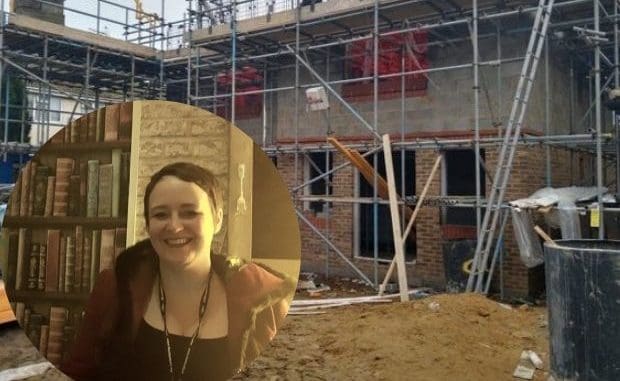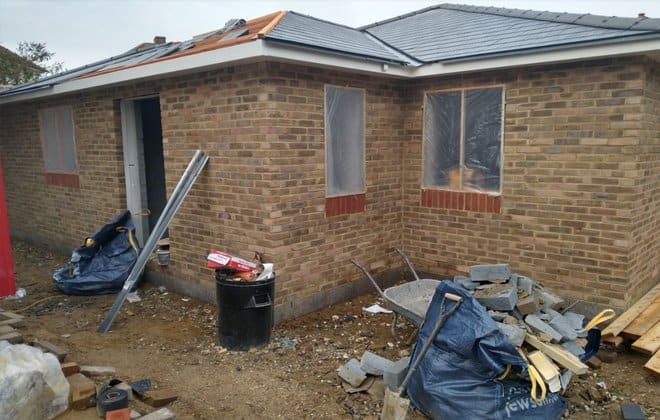
A lack of affordable property development, shortage of one and two-bed homes, inaccessible rents due to a cap on local authority housing allowances and low wages, rising private rents and an increasing elderly population with specific property needs are all contributing to Thanet’s housing crisis.
A new Housing and Homelessness Strategy from Thanet council outlines the stark reality of residents struggling to find, or keep, quality housing and how the authority hopes to tackle the issue over the next five years.
According to the report the loss of a private rented tenancy is the biggest reason for homelessness in Thanet with landlords able to select tenants that can afford higher rents and have access to rent-in-advance, deposits and guarantors.
Rising rents and low incomes

Thanet property costs, both rental and mortgage, are rising due to a lack of supply and the high rate of second homes on the isle. Many families on universal credit/ housing benefit and/or low wages are struggling to top up rents not covered by the set amount of housing allowance.
The report says: “For those on low incomes, the housing options are scarce with a reliance on social housing for rent. New ‘affordable rent’ at up to 80% of market rents is increasingly affordable to those on low incomes and the council’s Tenancy Strategy limits ‘affordable rents’ for new build homes to the relevant Local Housing Allowance rate to assist with this.
“There is also a growing ‘affordability gap’ where middle income households are being squeezed out of the market; with limited housing options for low cost home ownership or the private rented sector.
“The difficulties in accessing home ownership and the increasing cost of rental accommodation, is resulting in more employed households making approaches to the council.”
According to figures in the report there are 19,471 households – 29% of the Thanet population – on a low income, defined as less than £15,988 per annum.
On average earnings are £462.50 per week which is within the bottom 20% of the whole of England. This means more than 80% of the population in Thanet cannot afford to buy an averagely priced terraced house and those who are renting in the private sector are spending more than 50% of their earnings on living costs. The National Housing Federation says only 30% of income should be spent on housing costs.
The lack of affordable housing means more people living in poor quality accommodation, overcrowding or under-occupancy.
Read here: Locked Out: Housing benefit freeze putting rental properties out of reach for Thanet families
Increasing affordable homes
The new strategy includes aims to increase affordable homes, create a council housing company, target local residents with exclusive marketing for home ownership, continue to use disabled facility grants to adapt housing for older residents and improve working across agencies.
Thanet council deputy leader Helen Whitehead says the housing plan has been created with input from councillors across the political parties and will involve much more partnership work.

She said: “It is very much an evolving strategy, we will be constantly reviewing and developing action points on each of the main themes. We will make sure we are responding to the needs in the area and demographically these can change quite significantly.
“We are also acknowledging that issues are not separate. There is no point in looking at homelessness on its own because it does not exist in isolation. It exists alongside other needs and that’s why the multi-agency approach of RISE works so well. This is what to do with the housing strategy, looking at needs as a whole and the impact by everything that surrounds that.
“The only way forward considering the level of cuts we have had nationally is to be as creative as possible, acknowledge how everything is linked and provide the best service possible.”
According to the report there are 67,000 homes in the Thanet district area with 3016 in council ownership. It is estimated that 1 in 7 people in the district live in a deprived area and 1 in 5 children in the district live in poverty.
As of September 2019, there were 2,354 households on the housing register with 109 listed as in urgent need and 200 in serious need, with the remainder listed as ‘reasonable preference.’
Just over half of those on the register need a one bed property with the next highest need for two bed properties. A third of those needing one-bed homes are over 60 years of age. Some 502 households on the housing register have a physical or mental health condition, made worse by their housing circumstances.
Shared ownership – where a resident can purchase anything from 25% upwards of their home – is one option the council is examining to make ownership more accessible.
More accessible homes will be created through the lowered threshold for affordable housing from 15 to sites of 10 or more units needing to provide 30% affordable housing.
Read here: Unaffordable housing: ‘Trapped at home aged 23 and sharing a room with my teenage brother’
Energy efficiency

And the council’s own build programme will continue with a focus on making sure properties are energy efficient to lower utility bills.
According to the Department of Business, Energy & Industrial Strategy, 10.6% of households in the district live in fuel poverty which impacts on their health and well-being. Fuel Poverty is defined by a low income household with high costs. If fuel costs are above average, by paying for that amount, the remaining household income falls below the official poverty line.
The highest concentrations of fuel poverty are in the private sector and are found in wards of Cliftonville West, Margate Central and Eastcliff with excess cold concentrated in the Thanet Villages, Dane Valley and Central Harbour.
Some 11% of the private sector homes in Thanet also contain a Category 1 Hazard, defined by the Housing Health and Safety Rating System as a serious and immediate risk to a person’s health and safety. This relates to damp and mould in properties. The report says the cost of dealing with these hazards would be approximately £18.8m.
Thanet council aims to invest more in energy measures for homes including heating improvement, double glazing, solid wall insulation and solar hot water which will enable over 36% reduction in energy demand.
A reduction of 20% in energy demands could also be made by implementing heating improvements within tower blocks across the district
Cllr Whitehead said energy efficient builds would be important in terms of the climate change declaration made by the council last year. She added: “What I would like to see come from the new (council) housing company is eventually using the facility to create some flagship environmental builds. We already do well and are above national recommendations for insulation and double glazing to be as environmentally sustainable as possible in the new builds.
“During working with and speaking to all parties on this strategy, the Green Party would like to see Passive level (high energy savings, greenhouse gases reductions, ecologically sustainable) builds. Looking at larger and more extensive projects we would have to think how we could deliver that and how to stretch it further.”
Read here: Council plans to create its own housing company to tackle isle shortage
Working with other services
The strategy says linking up with services to promote better health and wellbeing will also form part of the housing plan. This aims to help people live independently for longer, develop online skills so people can access services, target isolation and work to support those with mental ill health, disabilities and young people – especially care leavers – who need to access housing.
Work will also take place with landlords and on selective licensing.
An action plan for tackling homelessness and rough sleeping is also included in the strategy and was reported on by The Isle of Thanet News last week – Unique homeless sheltersuits delivery and council report on stark reality for Thanet rough sleepers
Getting involved
Cllr Whitehead says the strategy has been created by involving the whole council and she hopes residents will read it and raise any questions they have.
She said: “The whole point of council should be to make things clear, what we want and how that will happen. It should be something people find accessible and we need to be approachable as our job is to serve.
“This was a full chamber effort and I hope residents who have questions or input will feel they can approach me or the other councillors to say they have an interest.”
A six week public consultation on the housing plan is due to be carried out – dates are yet to be confirmed. The final draft will then be submitted to council in February/March for approval.
Find the full housing strategy here
Read here: New Ramsgate houses being built in £2.5m affordable homes project
Read here: From homelessness and addiction to work and becoming a home owner – “do not give up on hope”

